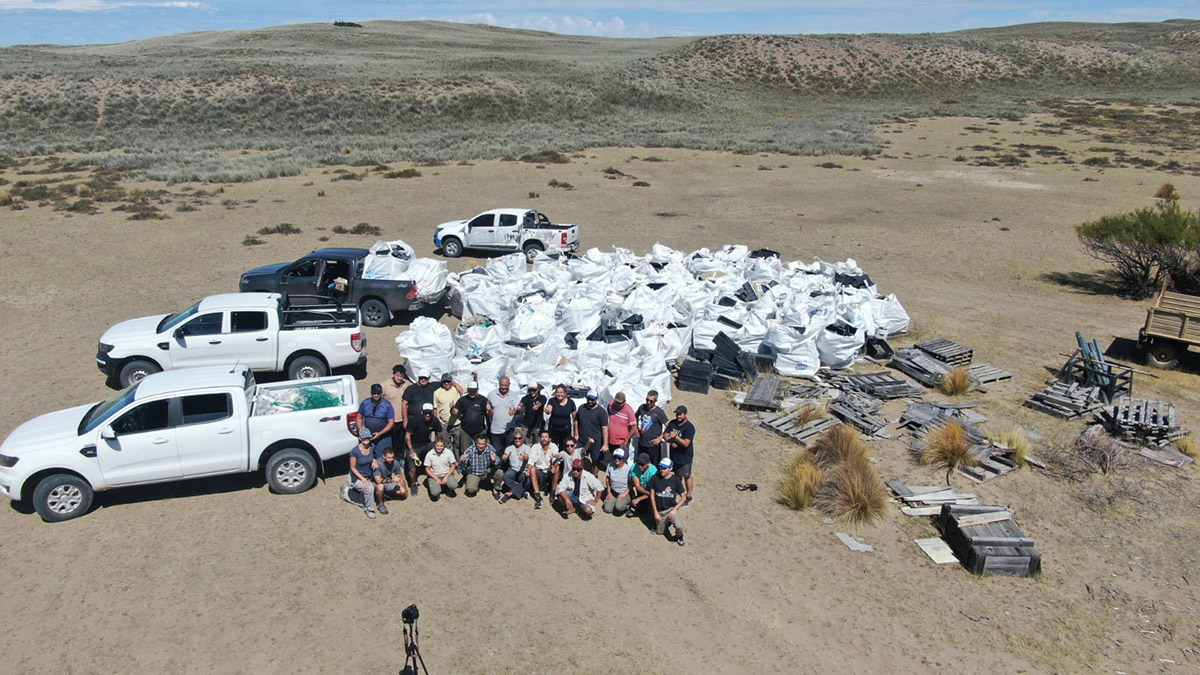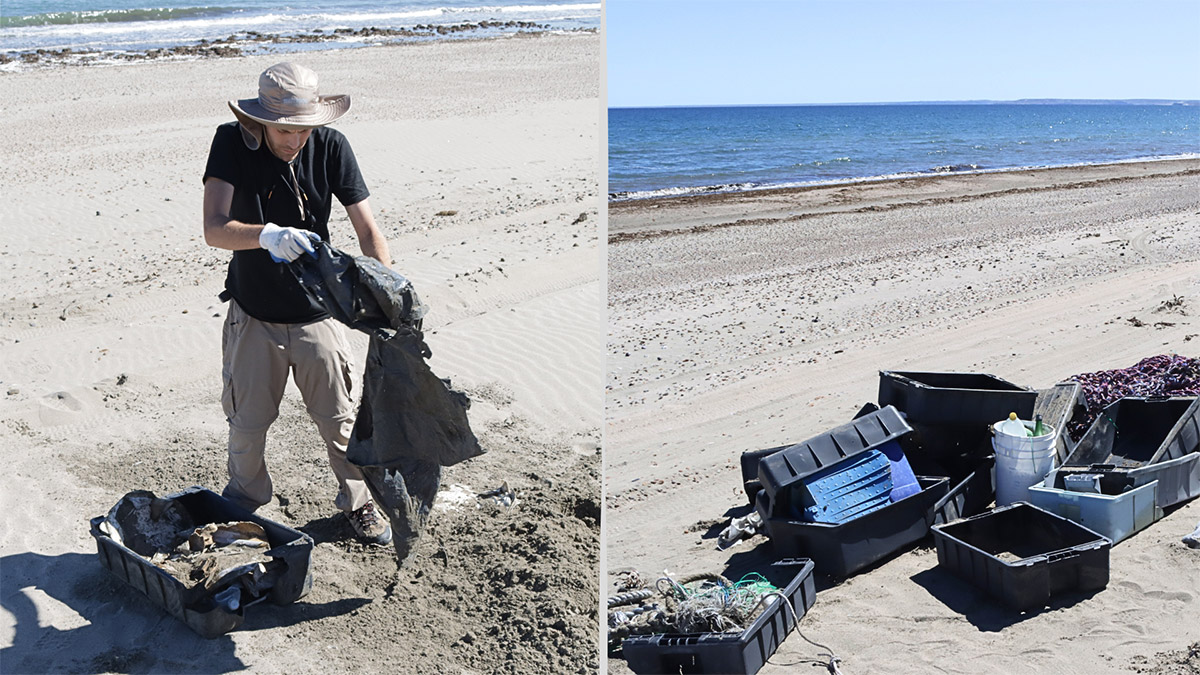
Between February 28 and March 1, 2024, a coastal cleanup was carried out along 10.2 km in Playa Cormoranes, located in Golfo Nuevo, Península Valdés.
This action arose from a collaboration between the Forum for the Conservation of the Patagonian Sea, the provincial government of Chubut -through the Secretariat of Environment, the Ministry of Tourism and ANP, and the Secretariat of Fisheries- and the civil society organizations that are part of the Forum, Fundación Vida Silvestre Argentina (FVS) and the Whale Conservation Institute (ICB). It was developed within the framework of the MaRes Project to strengthen the resilience of Argentina’s Marine Protected Areas (MPAs), which is financed by the European Union.
During three days, a group of 22 people participated in the activity, including technicians, park rangers, officials and members of civil society organizations. The coordinated work made it possible to collect 120 bags of waste (more than 10 tons), mostly: crates, buckets, ropes, nets, mattresses, nylon wrappings, packing boxes, cloth gloves, leather gloves, plastic bottles and glass bottles, mainly from fishing activities.
In relation to the long-term strategy, Fernando Pegoraro, Undersecretary of Environmental Management and Sustainable Development, emphasized that this activity “is part of a series of cleanups and censuses initiated in 2022, the results of which have enabled them to improve waste collection techniques”.
Playa Cormoranes is a site within the Península Valdés Natural Protected Area which, due to its characteristics, has become an area of accumulation of waste from the sea. Pegoraro added that “a survey and evaluation of waste in the same area is planned after 50 days in order to provide updated information to what has already been recorded in previous interventions, and thus achieve a detailed understanding of the impact of plastic pollution and its sources”.
In addition, it was proposed to generate information on the operational and logistical nature of the cleanup, to contribute to the systematization of methodologies from an integral perspective, and to guide efforts in other remediation interventions in the Natural Protected Areas of the region, taking into account the characteristics of the site (such as access to the coast, fauna calendar, among others).
Alejandro Arias, Fundación Vida Silvestre (FVS) Coastal Seascapes specialist, pointed out that “due to the distances between beaches, urban centers and waste reception sites, the logistics of this type of activities represent a great challenge. The alliance between different actors made it possible to overcome these obstacles and achieve the proposed objectives”.
Plastic waste from fishing
Plastic pollution is a growing problem at a global level, where most of the plastic waste originating in large urban centers ends up in the sea due to inefficient management and bad practices.
In the Patagonian coasts, mainly in Chubut, most of the waste found comes from the sea and is generated by productive activities, including fishing.
This situation generates great concern in the region due to its direct consequences on biodiversity, especially in MPAs, which results in injuries and death, as well as affecting marine environments.
Plastics also slowly degrade into microplastics, which increases their potential to contaminate marine ecosystems of great relevance for Patagonian biodiversity, with consequences for human life as well.

In this scenario, the systematization of cleanup protocols is very useful to guide restoration efforts in these areas. This protocol incorporates proven measures aimed at safeguarding fundamental ecological processes in the affected sites, and provides a set of good practices that seek to optimize the use of resources and promote more efficient management that minimizes the impact of the intervention.
In relation to the importance of taking care of our coasts and seas, Pablo San Luis, representative of the Secretariat of Fisheries, mentioned that from this organism “they are carrying out awareness campaigns aimed at workers in the sector to minimize the loss of plastic elements in the sea”. Finally, he highlighted the beauty of the place, the visual impact on the landscape once the cleanup was finished and invited the community “to stay informed and participate”.
Circular strategies
The recovery and proper management of plastic waste collected in the cleanups is an example of the importance of implementing circular strategies to prevent these plastics from negatively impacting coasts and seas, and associated species.
The waste collected during this activity will be sent to two recycling centers (Centro de Jubilados de la Alimentación and Reciclados Patagónicos), with the aim of providing traceability to these plastics, using them as inputs for the production of new products. This results in contributions not only to reduce plastic on the coasts and seas, but also prevents it from reaching landfills, and encourages its recycling and reuse.
While cleanup actions and censuses play a fundamental role in restoring environmental health, multisectoral efforts to apply preventive strategies are the key catalyst for a significant transformation in the impact of human activities on these ecosystems.